“The whole world steps aside for the man who knows where he is going.” Anonymous
We spend more time planning our dinner than we do planning our lives.
That’s a fact.
Many of us live as if we’re floating on a raft being tossed about by the
currents of other people’s opinions and agendas.
But it’s not entirely our fault.
Many of us spent our childhoods being told what to do, being discouraged
from expressing opinions, and even being told by the adults in our lives that our feelings and desires weren’t real.
As a matter of fact, when I was a kid you never questioned an adult even if
they were lying through their teeth.
I remember my mother angrily asking me when I called her on something,
“Are you calling me a lie?”
It was an awkward position to be in since I was taught to tell the
truth, except when it applied to my mother or other authority.
To answer “no” would mean to lose a bit of my authenticity, but it
would save my hide.
To say “yes” would mean the dreaded spanking, now considered child abuse
but then was considered good parenting.
It’s no surprise to me that many clergy and other authority figures got
away with unspeakable crimes against children.
What protection is there for children when they are not believed or are too
afraid to point the finger at someone who is placed on a pedestal and
considered above reproach.
When we somehow survive childhood and move past that murky area called
adolescence, we arrive in adulthood suddenly expected to think for
ourselves and decide what we’re doing with our lives.
How can we thrive as adults if we weren’t encouraged as kids to think for ourselves?
Treat it the way you get up to speed on a job for which you have no
training.
1. Learn from the people who are where you want to be.
Locate and seek out people who are in the career you want or are living the
lifestyle you want.
Talk to them, get to know them, ask questions, hang out with them in person or build relationships through social media.
Successful, confident people are willing to share with you, maybe even
mentor you.
But don’t just follow successful people blindly. Choose your way based on your values and goals.
2. Get the skills necessary to get where you want to go.
Discover your own interests. What do you enjoy doing? What activities do you
enjoy? What are your strengths and weaknesses? And what about your values:
what matters most to you?
“Find something you love to do and you’ll never have to work a day in
your life.” Harvey McKay
And then when you find what you love to do, add the skills and practice
that will move you to expert status.
3. Learn to love yourself just as you are now.
After you make a self-assessment and find what you want to do, you may be
hit with bouts of doubt. It happens to all of us, and may cause you to
question whether you’re too young, too old, too tall, too short, or some
other “too.”
Replace those negative thoughts with positive affirmations pointing you to
the goals you are now after. If positive affirmations are not to your
liking, see how others pulled themselves from despair or depression to
learn to love themselves. In his book, “Love Yourself Like Your Life Depends On It”
Kamil Ravikant, tells how he got his life back when he changed his
relationship to himself.
You may also experience fear, but remember that F-E-A-R is False Evidence
Appearing Real.
If you feel the need to get help with building your self-esteem or coming
to terms with the past, get the loving and professional help you deserve.
4. Decide where you want to go and take the first step.
The great thing about deciding where you want to go is that you don’t have
to know the full route, just the destination.
When you have passion, determination and skills, all you need to do is take
the first step. The next series of steps will appear as you go forward.
And don’t make the mistake of playing small, or only going after what you
think is within your reach.
There is no benefit in going after less than what you want or deserve.
Nature loves motion, the Universe loves bold action,and humans love to step aside for the person who knows where she is going.
That could be you.
If you enjoyed this article, share it with others and leave a comment. To get more tips and encouragement like this, subscribe to the Color Your Life Happy newsletter at the top of the page. You’ll even get a great free ebook, “It’s About Time: Managing Your Time to Create the Life You Want and Deserve.”
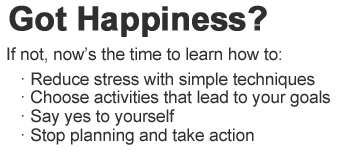
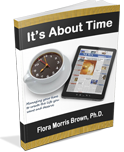


 Follow
Follow
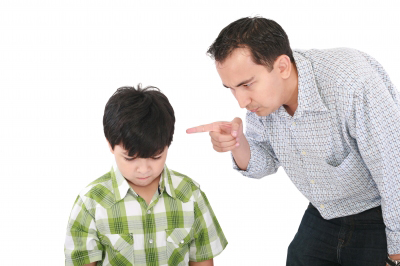
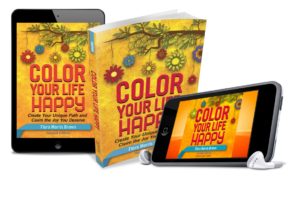
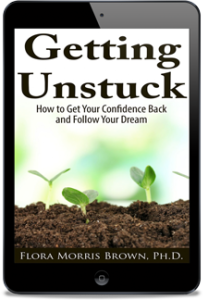
Flora, this is a perfect example of how these early experiences effect children and can impact us into adulthood. But, as you so aptly point out, we can thrive, reshape our lives and make life choices based on what’s in our best interest rather than what someone else has decided for us. Thanks for sharing this important message.
Hi Gladys,
There’s no doubt that our early experiences have a big impact on our adult lives. Once we realize that we have a choice in how to respond and have power in directing our own lives, we are on our way to thriving. I’m glad this message resonated with you.
This is so true, Flora! You’ve painted an accurate childhood picture for most people. I like the idea of learning from people who have experience. It’s a great way to begin.
Hi Sandra, Learning from others is a great beginning. I’m happy that we’re more comfortable with being honest with each other. That way we don’t waste energy thinking others had perfect childhoods and have perfect lives. Thanks for making time to share your input.
This is a very good post. I like that you let people know that their childhood doesn’t completely control what happens to them as an adult. Keep up the good work.
Hi DeAnna,
I’m glad this post has meaning for you. We certainly can’t control out childhoods, but we definitely control how we respond to and shape our adult lives. Thanks for your kind words.